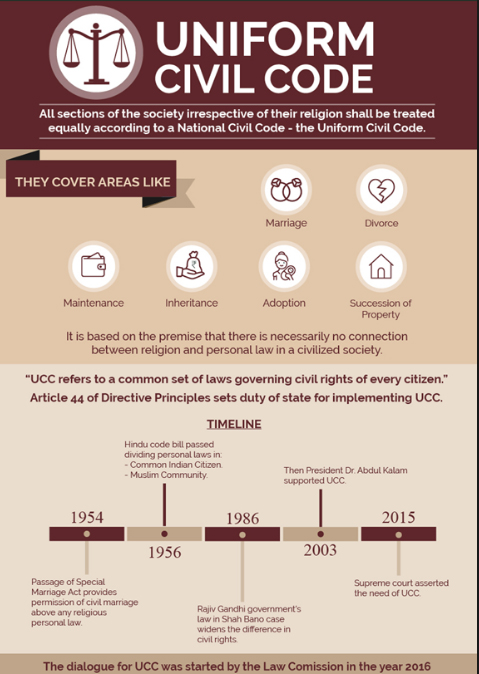Uttarakhand
Uttarakhand Set to Exempt Tribals from UCC
- 02 Feb 2024
- 3 min read
Why in News?
The proposed Uttarakhand Uniform Civil Code to be introduced in the state assembly is set to exempt the state’s tribal population fully from its provisions.
Key Points
- Tribals constitute about 2.9% of Uttarakhand's population with the Jaunsari, Bhotiyas, Tharu, Raji and Buksa among the prominent ones.
- Polyandry and polygamy are also prevalent customs among a few tribes in thehill state.
- The Uttarakhand UCC committee had also held talks with these tribal communities on a uniform code.
- The younger tribal population had also given feedback that while polyandry/polygamy and other practices were in vogue in earlier generations, they are hardly in practice now and hence the reform was welcomed.
- However, tribal and ethnic communities across states, especially the northeast, have openly expressed their opposition to the imposition of any civil code that could impact their customs and age-old ways of life.
- Halala, Iddat and Khula options on divorce and remarriage for Muslims will be illegal under the new code which will call for divorce and remarriage only by way of legal proceedings in courts of law.
- The state's code will mandate compulsory registration of live-in relationships and seek full succession rights for children born out of such unions.
Tribes of Uttarakhand
- Tribes of Uttarakhand mainly comprise five major groups namely Jaunsari tribe, Tharu tribe, Raji tribe, Buksa tribe, and Bhutia.
- The main concentration of the tribal population is in rural areas.
- As per records, around 94.50% of the total tribal population resides in rural areas and the remaining percentage of the tribal population lives in urban centres.
- In terms of population, the Tharu tribe is the largest tribal group in the state.
- Every district of Uttarakhand has more or less a moderate percentage of the tribal population.
- These tribes of Uttarakhand have been scheduled in the Constitution of India.







